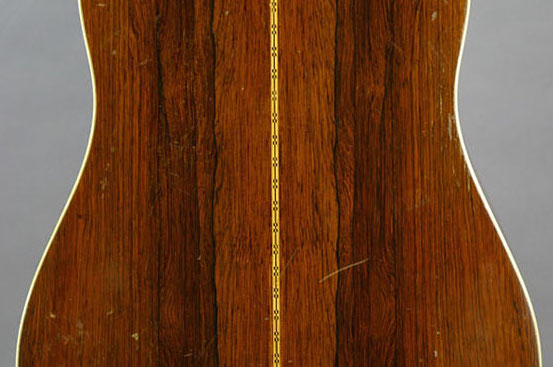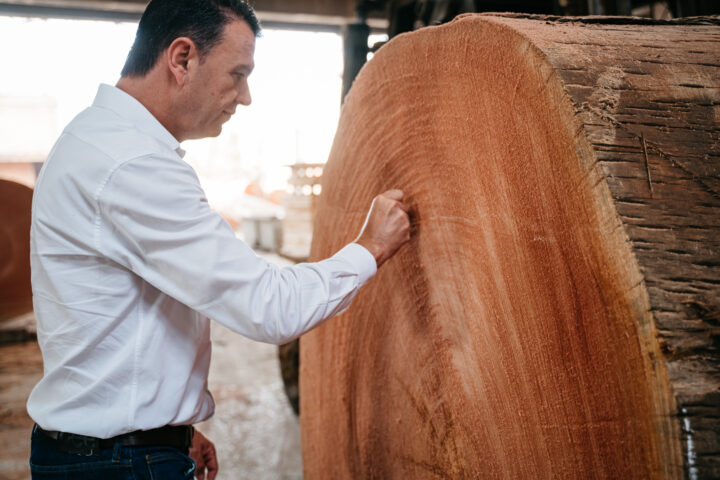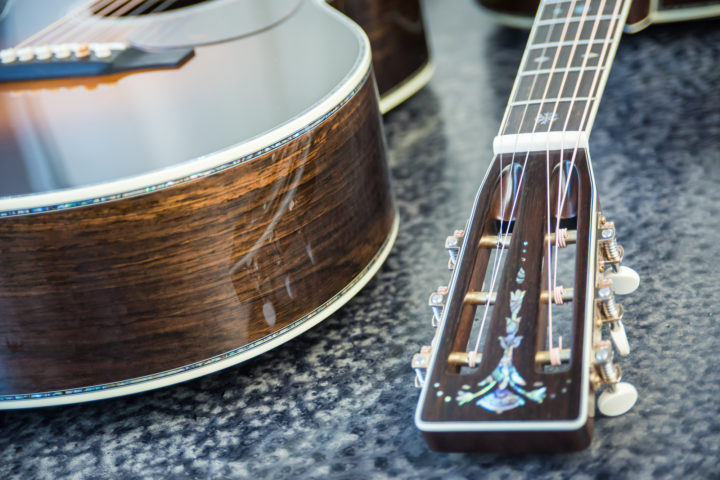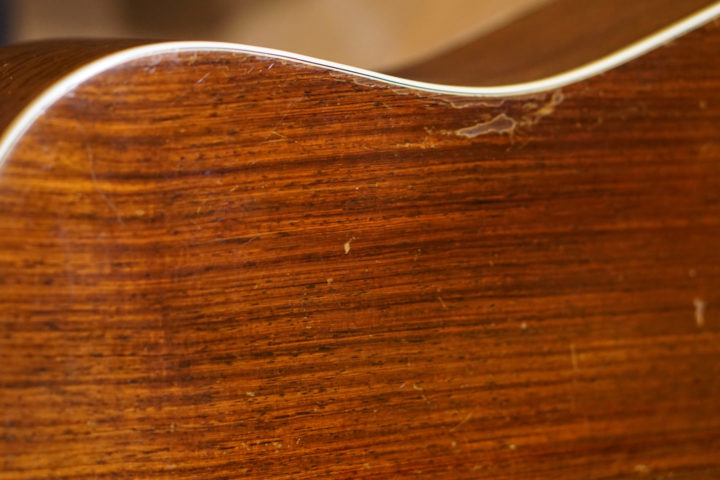The death of the Brazilian rosewood guitar market has been greatly exaggerated.
So, here’s the story. Towards the end of May, 2014, well-meaning folks posted all over cyberspace that Brazilian rosewood would become “ILLEGAL IN JUNE.” Yep, in all caps. The posters’ evidence was this bit of language promulgated by the US Fish and Wildlife Service (FWS), the federal agency charged with enforcing the Endangered Species Act and the Convention on International Trade in Endangered Species:
Exception: If the specimen was lawfully imported, with no restrictions on its use after import, before the species was listed as described in paragraphs (a), (b), or (c) of this section, you may continue to use the specimen as indicated for paragraphs (d), (e) and (f) of this section provided you can clearly demonstrate (using written records or other documentary evidence) that your specimen was imported prior to the CITES listing, with no restrictions on its use after import. If you are unable to clearly demonstrate that this exception applies, the specimen may be used only for noncommercial purposes.
This language is part of a batch of regulations first proposed by FWS on March 8, 2012 and subject to public comment for 60 days, or until May 7, 2012. Some two years later, on May 25, 2014, FWS posted the final rule which reflected modest changes catalyzed by some of the comments offered by the public. (Nearly all comments were offered by “falconers and raptor breeders.”) After 30 days, or on June 26, 2014, the new regulations become law. Hence the reference in the Internet postings to “June.”

At first glance, the language might frighten owners of guitars containing Brazilian rosewood (or other CITES-regulated material like ivory and Hawksbill sea turtle). On June 11, 1992, the CITES member countries first listed Brazilian rosewood on the Convention’s Appendix I, the most restrictive of the three appendices and the one which bans any commercial use of the stuff, like selling or trading it. So, one might think, and some obviously have, that after June 26, 2014 you can only sell your Brazilian rosewood-bearing guitar if it came into the US before June 11, 1992. Right?
Wrong. FWS has simply created a new exemption that grandfathers in objects that were imported into the US before they were listed on CITES. This gives guitar owners more rights, not fewer. All prior rights to sell or transfer objects containing Brazilian rosewood remain unchanged.
The regulation at issue is section 23.55 of title 50 of the Code of Federal Regulations. Subpart (a) of § 23.55, provides as it has since 2007, that one may only use for “noncommercial purposes” materials listed in “Appendix I, except for specimens imported with a CITES exemption document listed in paragraph (d) of this section.” That exemption in (d), which remains unchanged under the new regulations, provides that one may use “for any lawful purpose” including sale, an object imported into the US pursuant to a “Pre-Convention certificate.”
Again, this provision has been in the regulations since 2007 and remains unchanged. It allows you to sell, buy, or otherwise transfer your Brazilian rosewood guitar so long as the rosewood was certified as “pre-Convention,” no matter when it was imported into the US.
What does “pre-Convention” mean? Section 23.5 of the regulations provides: “Pre-Convention means a specimen that was acquired (removed from the wild or born or propagated in a controlled environment) before the date the provisions of the Convention first applied to the species … and any product (including a manufactured item) or derivative made from such specimen.” So, if the rosewood the guitar maker used in building your guitar was chopped down before June 11, 1992, and the CITES import permit documents this, the guitar may be bought, sold, and otherwise used commercially.
As FWS observes in its preamble to the new §23.55, “We are not adding new prohibitions here. The restrictions on use after import of certain CITES specimens have been in place since 2007.” The new language in §23.55, FWS states, simply makes clear the agency’s intent to grant grandfather status to things threatened with illegality by subsequent modifications to CITES:
Since publication of our regulations in 2007, we have given further consideration to the allowed use of a specimen within the United States when the listing status of the species changes after a specimen has been imported. We are amending this section to clarify that the allowed use after import into the United States is determined by the status of the specimen under CITES and the ESA at the time it is imported, except for a CITES specimen that was imported before the species was listed in Appendix I, or listed in Appendix II with an annotation disallowing commercial use, or listed in Appendix II or III and threatened under the ESA. Where an individual can clearly demonstrate that his or her specimen was imported with no restrictions on its use after import, prior to the species being listed under CITES with restrictions on its use after import, we will continue to allow use of the specimens as allowed at the time of import.
And, even more clearly, FWS notes in the preamble that the new exemption is designed to make sure that your rights are not affected by the upgrading of species’ CITES status after the species have entered the US:
Under this final rule, if an Appendix-II specimen is imported with no restrictions on its use (i.e., it is not protected under the ESA and it is not subject to an annotation requiring that it be used only for noncommercial purposes) and the species is subsequently transferred to Appendix I, if you can clearly demonstrate that your specimen was imported prior to the Appendix-I listing, use of the specimen within the United States will not change (i.e., it will not be restricted to noncommercial use) with the change in the status of the species under CITES.
The new regulations do but one thing: create an exemption (including a documentation requirement for domestic sales) for stuff imported before it was listed on CITES. Stuff imported post-ban, like Brazilian rosewood imported after June 11, 1992, must be imported with a pre-CITES exemption certificate. This has been the law since 2007. The law does not require that a copy of this certificate or any other documentation accompany the sale of an instrument into which that wood was incorporated. There is no requirement in the law that a buyer or seller in any domestic transaction involving that wood produce or transfer any paperwork.
Except for the new pre-CITES exemption, nothing has changed. You can live your guitar buying, selling, and playing life as if you’d never had the misfortune of stumbling in cyberspace upon the pronouncement that Brazilian rosewood was about to become illegal.
So, don’t be alarmed by the alarmists. Ignore folks like the major US dealer in vintage guitars who has told folks he’s not accepting for consignment guitars containing Brazilian rosewood “because on June 26, it will become a felony to sell them.” Bask in the notion that, at least this time, FWS has your back … and sides, fingerboard, and bridge.
As Mark Twain famously said, “Don’t believe everything you read on the Internet.”


